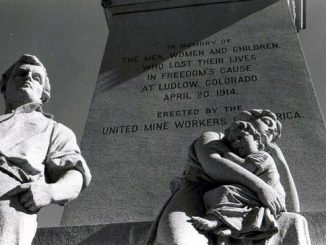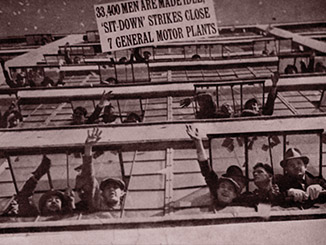Last month in Wisconsin, Governor Scott Walker signed the latest in a series of so-called “right to work” laws that have been passed in half the states in the country. In most of the 25 states that have passed these laws, unemployment is usually higher than average, and wages are often lower as well. These laws only serve one purpose: to give companies more leverage in their attacks against workers by going after union organizing and their funding.
What These Laws Change
In the 1940s the bosses offered the heads of unions a deal. The unions could have what they called a “closed shop”: anyone hired at that company would automatically be put into the union. And also they promised what they called “dues check off”: workers’ dues would be automatically deducted from their paychecks and deposited into the bank accounts of the union. What’s important about this is that who came up with this idea for the first time in 1941 was not the workers, not the union, but Henry Ford, a capitalist. His reasons for doing it were very clear. If workers were automatically in the union, then workers wouldn’t have to organize to convince other workers to join it or to pay dues to support it. Ford thought that this way bosses could bypass the workers themselves and only have to deal with the heads of the union. Ford would guarantee them dues, and the union leaders would keep the militancy of the workers at a minimum. For the most part, his strategy worked and became the standard practice for the decades to come. Later it was applied by most unions and companies.
Today, however, in 25 states across the country, some capitalists and some of their politicians believe that they can gain even more control if they get rid of this basic compromise that has been in place for over 74 years. And that is what the so-called “right to work” legislation does.
What Bosses Gain From These Laws
Under new laws it is no longer required for all workers covered by a union contract to be in the union and have their dues automatically deducted. Workers have to decide on their own to join the union and pay their dues.
Of course, workers should decide whether they want to be in a union and whether to pay dues to it just as much as they should decide everything that their union does. But in no way are these laws being passed to give workers more control. The goal of these laws is to reduce the funding of the unions by depriving them of dues.
It is true that for the Republican Party politicians behind some of these laws, there are electoral reasons for pushing them. Union dues make up $150 million in campaign contributions every election cycle, and about 90 percent of that goes to the Democratic Party. Republican organizations like the American Legislative Exchange Council, The Heritage Foundation, National Right-To-Work Committee have all given huge amounts of money to politicians who support these laws. The Republicans think they can improve their chance of winning if they go after some of these union funds which would go to Democratic Party candidates.
But Republicans are not the only supporters of these bills. Democratic politicians have pushed for them as well, like State Representative Courtney Curtis of Missouri and several others. But in most cases there is one group that is always pushing for these bills: the Chamber of Commerce – the coalition of corporations. Corporations care less about which political party is in office – both serve them just fine. They support the anti-union legislation because they know they can carry out further attacks on workers when workers don’t have a union. And they know the less money unions have, the weaker these unions are going to be. Several reports have shown that “right to work” laws typically reduced union membership by five to ten percent within five years. At the same time, workers’ wages were reduced by over three percent, about ($1,500 per year). It’s no mystery why many capitalists are in favor of these laws. They are one more weapon in the class war.
What Do These Laws Mean For Workers
With or without these laws, the attacks from the bosses will not stop. And in the face of these attacks, what’s absolutely clear is that workers cannot depend on the unions as they currently are to defend us. The existing union leadership has refused to wage a real fight back.
The only solution to these attacks is for workers to organize ourselves and lead our own struggles. This will mean forming new unions if they don’t exist and taking control of them when they do, or bypassing them altogether if we have to. And of course it will mean paying dues to our own organizations. But in each case, it must be the workers ourselves who control things.
Without a fight, without organization, we won’t defend ourselves. This was true during the formation of the unions and is still true today.




